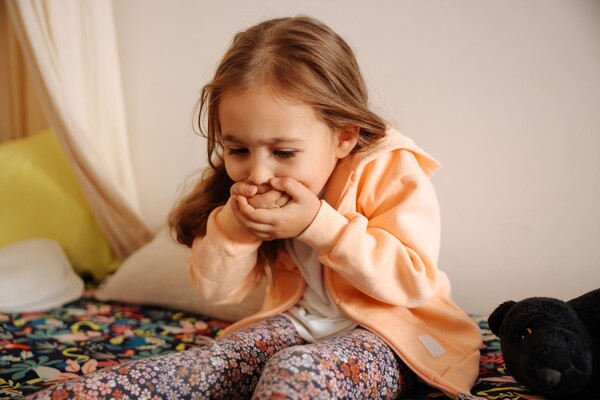If your child vomits during the cold winter months, you should strongly suspect one disease: norovirus infection.
"Norovirus, nicknamed 'winter vomiting,' has long been an epidemic virus in winter. If children vomit in winter, it's almost always norovirus," said Professor Park Jun-sung of the Pediatric Emergency Department at Asan Medical Center in Seoul on the YouTube channel “Asan Medical Center.”

Like other infectious diseases, including influenza, which decreased during the Covid-19 pandemic due to strict hygiene management, norovirus infections have recently increased. "During the Covid-19 pandemic, people didn't get it much because they were very careful about washing their hands, but it seems more prevalent now that their immunity fell slightly lower," Park said.
If parents and children ate the same food or even if only parents ate winter foods with a high risk of norovirus infection, such as oysters, the child might get norovirus infection while the parents were fine.
"Adults are immune to norovirus because they've been getting and overcoming many times since they were kids," Professor Park said. “However, kids are exposed to the virus for the first time in their lives, so they are infected every time they contact it.”
It is also possible for a child who has not eaten oysters to be infected by a parent who has eaten oysters and then shed the virus in their feces.
"If the norovirus is in the environment and passes from your hand to someone else's hand or if it is in food or uncooked vegetables and someone else eats them, they get enteritis," Park explained.
Winter norovirus infections in children often start with diarrhea. "A lot of people think that enteritis usually causes diarrhea, but noroviruses are characterized by vomiting, so the most common symptom is vomiting," Park said.
It starts with vomiting, followed by stomach pain and diarrhea. "The reason you vomit when you have norovirus is that your gastrointestinal tract has lost a lot of movement, so when you eat something, it just sits in your stomach, and when you feel nauseous, you throw it up," says Park.
What should you do, then?
"If you force-feed your child because you think you need to replace the vomited food, they will end up with more vomit. So, if it's an acute bout of vomiting, it's best to fast for an hour or two and then give them some water when your child feels better," Park said.
There are certain foods to avoid during a norovirus infection.
"It's best to avoid all foods that slow digestion," Professor Park said. "Avoid solid foods, such as steamed rice, meat, and fatty foods. Feed your child porridge and avoid dairy products for any type of enteritis because the first thing lost in enteritis is the enzyme that breaks down lactose."
What about babies who can only take formula? "First, try to feed it and make sure they're as hydrated as they are diarrheic," Park said. "If that doesn't work, there are lactose-free diarrhea formulas, and you can switch back to soy formulas made with soy milk.”
Corn stubble tea or barley tea can also be used at this time. "There is no sugar or salt in corn stubble tea or barley tea, so there are concerns about electrolyte abnormalities if you drink it alone,” he said. “However, in general, there is no problem, and dehydration is more dangerous, so it is better to let your child drink it if they can to prevent dehydration."
While giving your child ionized water to replenish electrolytes is okay, it shouldn't be the only option.
"If you give them something like iced tea, you can replenish some of the sugars and electrolytes, but the problem is its high sugar content. Therefore, mixing it with water and making it flat is recommended, as it can cause further dehydration," he said.
Should people seek treatment if they have symptoms of norovirus infection?
"When the norovirus enters the body, it has a short incubation period of one or two days, and the symptoms appear immediately. There is vomiting for one or two days and diarrhea for two or three days. The total incubation period is about three days and four nights," Park said. "So, the main treatment is to prevent dehydration so you are not uncomfortable during that time."
"If children can't take a drop of water at all, starve them for about two to three hours and then give them water first, and if they don't progress orally at all, then they need injectable fluids. It doesn't matter if they receive it at a big hospital or a neighborhood clinic because the fluids are the same. So, you can give them injectable fluids in a comfortable environment at the nearest hospital."
Regarding diarrhea, antidiarrheals should only be used in cases of severe diarrhea.
"Diarrhea itself is a process of bacteria passing out, so you don't have to stop it all," Park said. "But if the amount of food you eat doesn't keep up with the amount of diarrhea, you can try some laxatives because you're dehydrated by losing more than you're eating. And if you're having a hard time changing diapers because there's too much loose skin around the buttocks, you can use laxatives because it's too uncomfortable for the child."
The biggest problem with norovirus infection is severe dehydration.
"You should visit a big hospital in this case, and when the amount of water in the body decreases, the capillaries start to stop sending water. If the dehydration is too severe, the kidney function and brain and heart function can decrease, so it is good to restore the dehydration at the right level,” Park explained.
"If you think your child is in severe dehydration, including drooping, dry lips, and not urinating at all, you should bring them to a big hospital to get them checked out and get them on fluids quickly," Park said.

